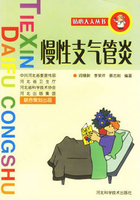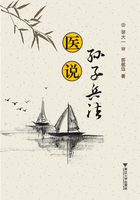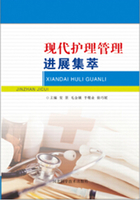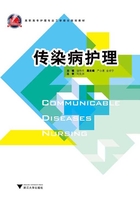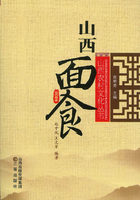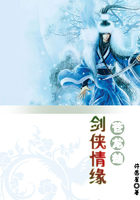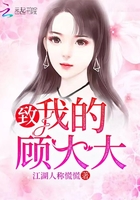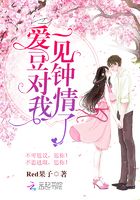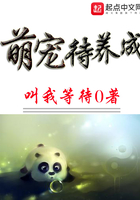1.Life is short, and Art long; the crisis fleeting; experience perilous, and decision difficult. The physician must not only be prepared to do what is right himself, but also to make the patient, the attendants, and externals cooperate.
1.生命短暂,医术长久;危象[注:危象,指病情的急转点,转折期。]稍纵即逝;经验危险,诊断不易。医生不仅必须自身处事正确,而且务必让病人及服务人员等外在因素通力合作。
2. In disorders of the bowels and vomitings, occurring spontaneously, if the matters purged be such as ought to be purged, they do good, and are well borne; but if not, the contrary. And so artificial evacuations, if they consist of such matters as should be evacuated, do good, and are well borne; but if not, the contrary. One, then, ought to look to the country, the season, the age, and the diseases in which they are proper or not.
2.当自然出现腹泻和呕吐时,若排除之物应予排除则有益身体,令人好受;反之则不然。[注:注意原文非常简洁,这是格言的一大特点。]所以人为的排除,若排除之物应予排除则有益身体,令人好受;反之则不然。因此人们应注意其适合或不适合于存在的地区、季节、年龄和疾病。
3. In the athletae, embonpoint, if carried to its utmost limit, is dangerous, for they cannot remain in the same state nor be stationary; and since, then, they can neither remain stationary nor improve, it only remains for them to get worse; for these reasons the embonpoint should be reduced without delay, that the body may again have a commencement of reparation. Neither should the evacuations, in their case, be carried to an extreme, for this also is dangerous, but only to such a point as the person's constitution can endure. In like manner, medicinal evacuations, if carried to an extreme, are dangerous; and again, a restorative course, if in the extreme, is dangerous.
3.健壮者若变得过于肥胖则危险,因肥胖之躯不会固定不变;既不可能固定不变或有所改善,则只会每况愈下;为此应及时减肥,不可拖延,以便使身体恢复健康。在此种情况下,减肥措施也不应走极端,因这同样危险;而只宜以人的体质能承受为限。同样,药物减肥若走极端亦危险;又同样,恢复的疗程若走极端亦不安全。[ 注:格言体现出把握好“度”的人生哲理——我们在生活的方方面面不也应如此?凡事都应力求“适度”,而要把握好这个度确非易事。]
4. A slender restricted diet is always dangerous in chronic diseases, and also in acute diseases, where it is not requisite. And again, a diet brought to the extreme point of attenuation is dangerous; and repletion, when in the extreme, is also dangerous.
4.无论漫性病还是急性病,过分节食总是危险,实无必要。饮食过分不足危险,而过分饱胀亦同样如此。
5. In a restricted diet, patients who transgress are thereby more hurt (than in any other?); for every such transgression, whatever it may be, is followed by greater consequences than in a diet somewhat more generous. On this account, a very slender, regulated, and restricted diet is dangerous to persons in health, because they bear transgressions of it more difficultly. For this reason, a slender and restricted diet is generally more dangerous than one a little more liberal.
5.就限制饮食而言,病人若运用不当则更为有害(比任何他人?);因所有这类运用不当之行为,造成的后果都比较为随意的饮食带来的影响严重。所以,经常性地过分限制饮食对于健康者危险,因他们更难于承受此种不当之举。因此,过分限制饮食通常比略为随意地限制更加危险。
6. For extreme diseases, extreme methods of cure, as to restriction, are most suitable.
6.对于重病,就克制治疗而言,最宜采取极端之疗法。
7. When the disease is very acute, it is attended with extremely severe symptoms in its first stage; and therefore an extremely attenuating diet must be used. When this is not the case, but it is allowable to give a more generous diet, we may depart as far from the severity of regimen as the disease, by its mildness, is removed from the extreme.
7.疾病处于剧烈之时,初期则伴随严重症状;因此必须尽量减少食物。但若非如此,饮食则可更加随意,不必受严格的食物疗法限制,直至疾病脱离危险。
8. When the disease is at its height, it will then be necessary to use the most slender diet.
8.当疾病处于最高峰之际,则必须对病人给予最少量之食。
9. We must form a particular judgment of the patient, whether he will support the diet until the acme of the disease, and whether he will sink previously and not support the diet, or the disease will give way previously, and become less acute.
9.对病人必须作出准确判断,看他是否能承受规定饮食直至病情严重,是否过早消瘦难以承受规定饮食,或是否疾病更先退出得以缓解。
10. In those cases, then, which attain their acme speedily, a restricted diet should be enjoined at first; but in those cases which reach their acme later, we must retrench at that period or a little before it; but previously we must allow a more generous diet to support the patient.
10.若病症很快达到高峰,最初则切忌节食;但若病症以后达到高峰,则必须在此时或再早一点节食;不过必须事先允许病人饮食更加随意使其身体获得供养。
11. We must retrench during paroxysms, for to exhibit food would be injurious. And in all diseases having periodical paroxysms, we must restrict during the paroxysms.
11.疾病发作时必须减少食量,否则有害无益。凡周期发作之疾病,发作时必须节食。
12. The exacerbations and remissions will be indicated by the diseases, the seasons of the year, the reciprocation of the periods, whether they occur every day, every alternate day, or after a longer period, and by the supervening symptoms; as, for example, in pleuritic cases, expectoration, if it occur at the commencement, shortens the attack, but if it appear later, it prolongs the same; and in the same manner the urine, and alvine discharges, and sweats, according as they appear along with favorable or unfavorable symptoms, indicate diseases of a short or long duration.
12.根据疾病本身、季节变化、周期交替——无论是每天、每隔一天或更长时间——以及根据意外出现的症状,即可看出疾病是恶化还是解除。以胸膜炎病症为例,若咯淡出现于初期,则疾病不会长久;但若出现于后期,则疾病将会拖延。同样,根据大小便、出汗的现象及与之相伴的有利或不利症状,即可知患病时间之长短。
13. Old persons endure fasting most easily; next, adults; young persons not nearly so well; and most especially infants, and of them such as are of a particularly lively spirit.
13.老年人最易节食,成年人次之,青年人则相差甚远;而尤其是婴儿——相对于他们而言,婴儿特别富有活力。
14. Growing bodies have the most innate heat; they therefore require the most food, for otherwise their bodies are wasted. In old persons the heat is feeble, and therefore they require little fuel, as it were, to the flame, for it would be extinguished by much. On this account, also, fevers in old persons are not equally acute, because their bodies are cold.
14.成长之躯有其充分的内在热量,因此需充足食物,否则会消瘦。而老人之躯少有热量,所以犹如炉火只需少许“燃料”,因燃料过多会使其熄灭。因而老人发热也不会一样剧烈,因其身躯热量不多。
15. In winter and spring the bowels are naturally the hottest, and the sleep most prolonged; at these seasons, then, the most sustenance is to be administered; for as the belly has then most innate heat, it stands in need of most food. The well-known facts with regard to young persons and the athletae prove this.
15.冬春两季体内热量自然最多,睡眠时间最长;此时应有充足之食物,因胃部既热量充分,亦最需食物提供养料。年轻人和运动员不乏众所周知的事实,可以证明。
16. A humid regimen is befitting in all febrile diseases, and particularly in children, and others accustomed to live on such a diet.
16.所有热病患者以吃稀食为宜,尤其是孩子和习惯此种饮食者。
17. We must consider, also, in which cases food is to be given once or twice a day, and in greater or smaller quantities, and at intervals. Something must be conceded to habit, to season, to country, and to age.
17.我们还必须针对各种病情,考虑每天给病人的食物是一次还是两次,是多还是少,间隔的时间是长还是短。同时也必须因习惯、季节、国家和年龄的不同而区别对待。
18. Invalids bear food worst during summer and autumn, most easily in winter, and next in spring.
18.夏秋两季病人饮食最差,冬季最好,春季次之。
19. Neither give nor enjoin anything to persons during periodical paroxysms, but abstract from the accustomed allowance before the crisis.
19.当疾病周期性发作时,给病人的食物既不增添也不禁止,而是在危险期前对其平常食物作适当减少。
20. When things are at the crisis, or when they have just passed it, neither move the bowels, nor make any innovation in the treatment, either as regards purgatives or any other such stimulants, but let things alone.
20.当病情处于或刚过危险期时,既不设法让病人排泄又不采取任何创新治疗——无论使用泻药还是任何其它类似刺激药物——而应随其自然。
21. Those things which require to be evacuated should be evacuated, wherever they most tend, by the proper outlets.
21.凡需排泄之物均应通过正当渠道予以排除,无论其最有何倾向。
22. We must purge and move such humors as are concocted, not such as are unconcocted, unless they are struggling to get out, which is mostly not the case.
22.我们必须排除和去掉已消化而非未消化的体液,除非它们本身正极力脱离躯体——在多数情况下并非如此。
23. The evacuations are to be judged of not by their quantity, but whether they be such as they should be, and how they are borne.
23.鉴定排泄物勿根据其数量,而应看其是否为应排泄之物,以及病人有何感受。
24. Use purgative medicines sparingly in acute diseases, and at the commencement, and not without proper circumspection.
24.对急性病最初宜少用泻药,并且要慎重。
25. If the matters which are purged be such as should be purged, the evacuation is beneficial, and easily borne; but, not withstanding, if otherwise, with difficulty.
25.若排除之物应予排除,则有益健康,令人易受;否则令人难受。
SECTION II.
注:[1] 每部分题目由译者根据内容添加,仅为大致概括。

